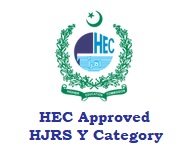Magnetometer heading estimation through online calibration for land navigation applications
DOI:
https://doi.org/10.47264/idea.nasij/2.1.5Keywords:
GNSS, MEMS-INS, AHRS, MEMS, World Magnetic Model, magnetometer, navigation, navigation applications, calibrationAbstract
For land navigation applications, the integration of the magnetometer with the combination of MEMS-INS and the Global Navigation Satellite System (GNSS) give excellent results. During land navigation applications, the magnetometer’s heading can also be used during the GNSS outages. The calibration of the magnetometer is indispensable to calculate its accurate heading. There exist several methods for magnetometer calibration. Some are offline and some are online calibration techniques. In this paper, a calibration method is proposed to estimate the magnetometer’s parameters through online calibration in run time. In this method, the reference magnetic field is calculated from the World Magnetic Model (WMM-2020). Moreover, reference roll, pitch and heading are provided from some other sources such as GNSS, Attitude Heading Reference System (AHRS), or reference INS. For different roll and pitch sectors, calibration parameters are estimated and stored. These parameters are used for magnetometer online calibration during the field testing. Both the headings obtained by the online calibration and conventional lab calibrations are analysed. Furthermore, the heading estimated through the online calibration is autonomous and fast. Subsequently, there is no user involvement in this online calibration technique and no specific movements to the device are provided. The heading obtained by novel technique is as accurate as obtained by conventional offline lab calibration.
References
Aggarwal, P., Syed, Z., Niu, X., & El-Sheimy, N. (2008). A standard testing and calibration procedure for low cost MEMS inertial sensors and units. The Journal of Navigation, 61(2), 323-336. https://doi.org/10.1017/S0373463307004560
D’Amato, E., De Capua, C., Filianoti, P. F., Gurnari, L., Nardi, V. A., Notaro, I., & Scordamaglia, V. (2021, October). UKF-based fault detection and isolation algorithm for IMU sensors of Unmanned Underwater Vehicles. In 2021 International Workshop on Metrology for the Sea; Learning to Measure Sea Health Parameters (MetroSea) (pp. 371-376). IEEE. https://doi.org/10.1109/MetroSea52177.2021.9611599
Caruso, M. J. (1997). Applications of magnetoresistive sensors in navigation systems (No. 970602). SAE Technical Paper. https://doi.org/10.4271/970602
Caruso, M. J. (2000, March). Applications of magnetic sensors for low cost compass systems. In IEEE 2000. Position location and navigation symposium (Cat. No. 00CH37062) (pp. 177-184). IEEE. https://doi.org/10.1109/PLANS.2000.838300
Fan, C., Hu, X., He, X., Tang, K., & Luo, B. (2014). Observability analysis of a MEMS INS/GPS integration system with gyroscope G-sensitivity errors. Sensors, 14(9), 16003-16016. https://doi.org/10.3390/s140916003
Chiang, K. W., Noureldin, A., & El-Sheimy, N. (2003). Multisensor integration using neuron computing for land-vehicle navigation. GPS Solutions, 6(4), 209-218. https://link.springer.com/content/pdf/10.1007/s10291-002-0024-4.pdf
Gebre-Egziabher, D., Elkaim, G. H., David Powell, J., & Parkinson, B. W. (2006). Calibration of strapdown magnetometers in magnetic field domain. Journal of Aerospace Engineering, 19(2), 87-102. https://ascelibrary.org/doi/abs/10.1061/(ASCE)0893-1321(2006)19:2(87)
Groves, P. D. (2013). The PNT boom: Future trends in integrated navigation. Inside GNSs, 8(2), 44-49. https://discovery.ucl.ac.uk/id/eprint/1394442/
Ilyas, M., Yang, Y., Qian, Q. S., & Zhang, R. (2013, May). Low-cost IMU/odometer/GPS integrated navigation aided with two antennae heading measurement for land vehicle application. In 2013 25th Chinese Control and Decision Conference (CCDC) (pp. 4521-4526). IEEE. https://doi.org/10.1109/CCDC.2013.6561750
Javed, M. A., & Tahir, M. (2021). A gyroless attitude estimation for ground vehicle under severe dynamic conditions. IEEE Transactions on Intelligent Transportation Systems. https://doi.org/10.1109/TITS.2021.3125712
Kaplan, E. D., & Hegarty, C. J. (1996). Understanding GPS, principles and applications. Artech House.
Kok, M., & Schön, T. B. (2016). Magnetometer calibration using inertial sensors. IEEE Sensors Journal, 16(14), 5679-5689.
Lim, J., Yoo, W. J., Kim, L. W., Lee, Y. D., & Lee, H. K. (2018). Augmentation of GNSS by low-cost MEMS IMU, OBD-II, and digital altimeter for improved positioning in urban area. Sensors, 18(11), 3830. https://doi.org/10.3390/s18113830
Lee, J., Sung, C. K., Oh, J., Han, K., Lee, S., & Yu, M. J. (2020). A pragmatic approach to the design of advanced precision terrain-aided navigation for UAVs and Its verification. Remote Sensing, 12(9), 1396. https://doi.org/10.3390/rs12091396
Mansoor, S., Bhatti, U. I., Bhatti, A. I., & Ali, S. M. D. (2019). Improved attitude determination by compensation of gyroscopic drift by use of accelerometers and magnetometers. Measurement, 131, 582-589. https://doi.org/10.1016/j.measurement.2018.08.067
Noureldin, A., Karamat, T. B., & Georgy, J. (2013). Fundamentals of inertial navigation, satellite-based positioning and their integration. https://link.springer.com/content/pdf/bfm%253A978-3-642-30466-8%252F1.pdf
Ozevin, D. (2014). Micro-electro-mechanical-systems (MEMS) for assessing and monitoring civil infrastructures. In Sensor Technologies for Civil Infrastructures (pp. 265-302e). Woodhead Publishing. https://doi.org/10.1533/9780857099136.265
Rabiain, A. H., Kealy, A., & Morelande, M. (2013). Tightly coupled MEMS based INS/GNSS performance evaluation during extended GNSS outages. Journal of Applied Geodesy, 7(4), 291-298. https://www.degruyter.com/document/doi/10.1515/jag-2013-0056/html
Skog, I., & Händel, P. (2006, September). Calibration of a MEMS Inertial Measurement Unit. In XVII IMEKO World Congress (pp. 1-6). https://citeseerx.ist.psu.edu/viewdoc/download?doi=10.1.1.65.5896&rep=rep1&type=pdf
Titterton, D., Weston, J. L., & Weston, J. (2004). Strapdown inertial navigation technology (Vol. 17). IET.
Wahdan, A., Georgy, J., & Noureldin, A. (2014). Three-dimensional magnetometer calibration with small space coverage for pedestrians. IEEE Sensors Journal, 15(1), 598-609. https://doi.org/10.1109/JSEN.2014.2348552
Won, D., Ahn, J., Sung, S., Heo, M., Im, S. H., & Lee, Y. J. (2015). Performance improvement of inertial navigation system by using magnetometer with vehicle dynamic constraints. Journal of Sensors, 2015. https://www.hindawi.com/journals/js/2015/435062/
Yang, L., Li, Y., Wu, Y., & Rizos, C. (2014). An enhanced MEMS-INS/GNSS integrated system with fault detection and exclusion capability for land vehicle navigation in urban areas. Gps Solutions, 18(4), 593-603. https://link.springer.com/content/pdf/10.1007/s10291-013-0357-1.pdf
Yongjian, Z., Lin, W., Guo, W., Chunfeng, G., & Hui L., (2021). Integrated navigation method of RLG INS/GNSS polar region. Infrared and Laser Engineering, 50(S2), 20210066. http://dx.doi.org/10.3788/IRLA20210066
Zhou, Z., Lyu, P., Lai, J., Zhu, X., & Huang, K. (2022). Multi-vehicle collaborative navigation Method based on datalink relative distance in GNSS denied environment. In Advances in Guidance, Navigation and Control (pp. 3875-3888). Springer, Singapore. https://link.springer.com/chapter/10.1007/978-981-15-8155-7_324
Downloads
Published
Issue
Section
License
Copyright (c) 2021 Muhammad Iqbal, Masood Ur Rehman, Umar Iqbal Bhatti, Najam Abbas Naqvi

This work is licensed under a Creative Commons Attribution-NonCommercial 4.0 International License.
Please click here for details about the Licensing and Copyright policies of NASIJ.








